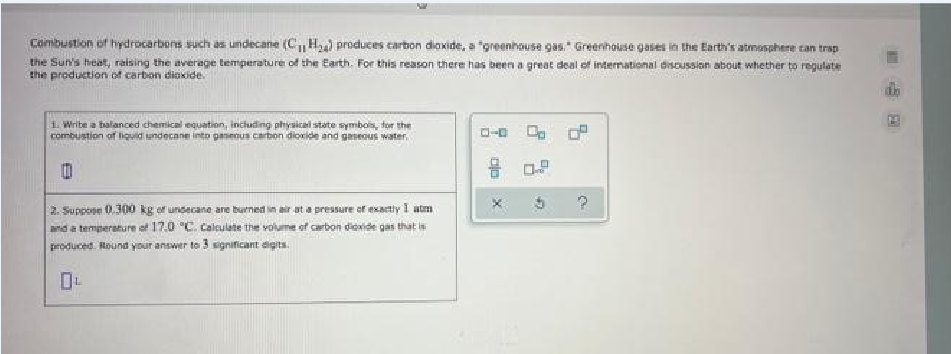Combustion of hydrocarbons such as undecane (C,H) produces carbon dioxide, a "greenhouse gas." Greenhouse gases in the Earth's atmosahere can trap the Sun's heat, raising the average temperature of the Earth. For this reason there has been a great deal of international discussion about whether to regulate the production of carbon dioxide. 1. Write a balanced chemical equation, including physical state symbois, for the combustion of liquid undecane into pemenus carbon dioxide and gameous water. D-D O OP 2. Suppose 0.300 kg of undecane are burned in air at a pressure of exactly I atm and a temperature of 17.0 "C. Calculate the volume of carbon dionide gas that is produced. Round your answer to 3 signiticant digits.
States of Matter
The substance that constitutes everything in the universe is known as matter. Matter comprises atoms which in turn are composed of electrons, protons, and neutrons. Different atoms combine together to give rise to molecules that act as a foundation for all kinds of substances. There are five states of matter based on their energies of attraction, namely solid, liquid, gases, plasma, and BEC (Bose-Einstein condensates).
Chemical Reactions and Equations
When a chemical species is transformed into another chemical species it is said to have undergone a chemical reaction. It consists of breaking existing bonds and forming new bonds by changing the position of electrons. These reactions are best explained using a chemical equation.

Trending now
This is a popular solution!
Step by step
Solved in 3 steps with 3 images









